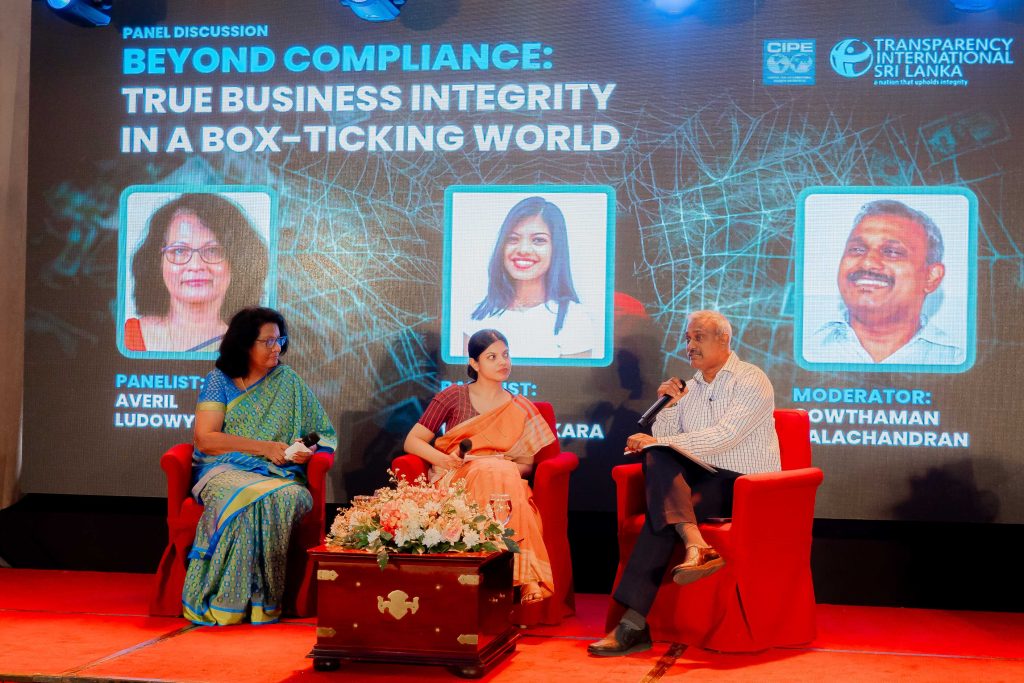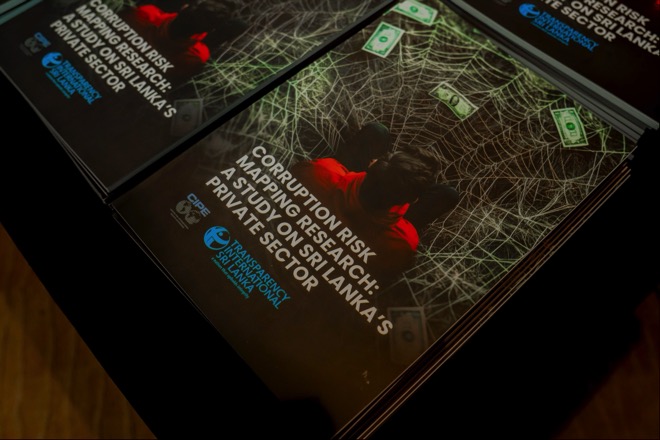Transparency International Sri Lanka (TISL) launched its 'Corruption Risk Mapping Research: A Study on Sri Lanka’s Private Sector' on December 12 at the BMICH in Colombo. This report presents an in-depth analysis of corruption risks within Sri Lanka’s private sector and explores potential measures to address them. Compiled by an Independent Researcher, this research documents and narrates alleged experiences and examples of private sector corruption, potentially for the first time in Sri Lanka.
Traditionally, corruption in Sri Lanka has been perceived as a public sector issue. However, this research indicates that the private sector often operates as the “supply side” of corruption. The documented allegations reveal a high risk of corruption when dealing with government departments for approvals and licences across all industries. The report also highlights corruption allegations in bidding for government contracts, particularly in the pharmaceuticals and large-scale infrastructure sectors.
The report details various forms of corruption among private sector entities, including kickbacks, gratifications, favors, fraud, unethical manipulation of procurement processes, conflicts of interest, nepotism, and favoritism. Notably, the research also uncovers allegations of private sector entities engaging in political lobbying and significant market manipulation through monopolies. Gender dynamics were also found to influence the nature of corruption, with respondents alleging that women are at a higher risk of being solicited for sexual bribes in exchange for jobs, promotions, or services.
The report underscores that while public listed companies are heavily regulated, their unlisted subsidiaries face fewer regulations. This allows parent companies to outsource their corruption to a subsidiary or sub-subsidiary. It identifies the lack of a strong regulator, internal controls, and regular financial and social audits as key risk factors leading to private sector corruption. Furthermore, it was found that new market entrants often resort to corruption as a means of survival due to an unfavourable business environment.
To combat these issues, the report proposes that the private sector adopt robust anti-bribery and corruption policies with whistle-blower protection, and pursue collective action to mitigate corruption. It also calls on the government to establish stronger regulatory bodies, digitalize processes, and enhance procurement practices.
The report launch was followed by a panel discussion titled “Beyond Compliance: True Business Integrity in a Box-Ticking World”. Panellists included Averil Ludowyke, an Independent Non-Executive Director at several leading private sector organisations, and Rukshani Wanigasekara, Senior Manager Corporate Legal at Cargills Ceylon. The session was moderated by Gowthaman Balachandran, Chief of Party for the Transparent and Accountable Governance Project supported by USAID.


